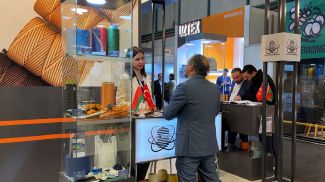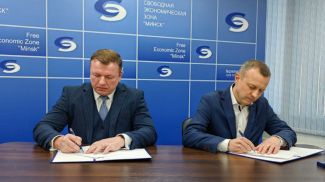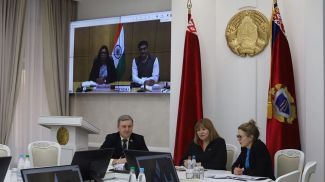MOSCOW, 16 February (BelTA) – The state regulation of prices in Belarus and Russia has helped stabilize prices for staple foods. The conclusion was made by participants of video consultations organized by the Antimonopoly Regulation Department of the Eurasian Economic Commission, the commission's press service told BelTA.
According to the source, those are prices for bread, meat, fish, milk, sugar, sunflower oil, and a number of other staple foods. Market experts believe that the introduction of the state regulation has not curbed competition and has not resulted in a decrease in the number of commercial entities or in the emergence of trade barriers.
Representatives of the Eurasian Economic Commission, authorized government agencies, and representatives of the expert community of Belarus and Russia took part in the consultations.
The Eurasian Economic Commission had previously received two notifications from member states of the Eurasian Economic Union about the introduction of price controls for individual staple foods. The notification sent by the Belarusian Antimonopoly Regulation and Trade Ministry and dated by 28 December 2020 provided for introducing the state regulation of prices for 17 staple foods for a period of 90 days in Q1 2021. Those included meat, fish, dairy products, bakery goods, cereals, sugar, baby food, and other ones. The ministry argued the price controls were necessary because of the continuing complicated epidemic situation, during which it is necessary to keep staple foods affordable for the population.
In turn, the Russian Economic Development Ministry sent a notification, according to which the Russian government passed a resolution on 14 December 2020 on reducing and maintaining prices for individual staple foods. The resolution was passed in order to reduce prices for sugar and sunflower oil and will be in effect till 1 April 2021.
The possibility of introducing price controls is stipulated by Annex 19 of the Eurasian Economic Union Treaty. Price controls can be introduced after notifying the Eurasian Economic Commission but the duration of price controls can be extended upon the commission's approval.













